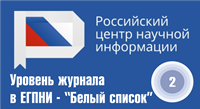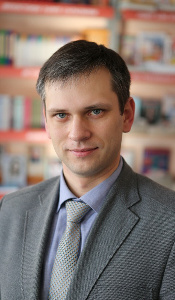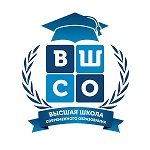ПОЛИСУБЪЕКТНАЯ ПРОФЕССИОНАЛЬНАЯ ПОДГОТОВКА БУДУЩИХ УЧИТЕЛЕЙ В УСЛОВИЯХ СОПРЯЖЕНИЯ ВИРТУАЛЬНЫХ И НАТУРАЛЬНЫХ ЭКСПЕРИМЕНТОВ НА БАЗЕ ТЕХНОПАРКОВ И КВАНТОРИУМОВ
Аннотация
Современная система подготовки будущих учителей немыслима без инновационной составляющей: это и необходимость, это и веление времени. Значительную роль в данной системе занимает полисубъектный подход, подразумевающий возможность реализации профессионального взаимодействия в практических условиях и отработке навыков профессионального общения. Тем не менее, при определенной мере изученности недостаточно, на наш взгляд, в научной педагогической литературе исследован вопрос о профессиональном взаимодействии и подготовке будущих учителей в условиях сопряжения виртуальных и натуральных экспериментов на базе технопарков и кванториумов.
Методологическая схема полисубъектной профессиональной подготовки нацелена на формирование наилучших условий для совершенствования личности студентов как будущих педагогов в рамках обучающего процесса. Профессиональная подготовка в режиме полисубъектности дает возможность студенту, используя материально-техническую базу технопарков и кванториумов, развивать профессиональные компетенции, самореализоваться в сфере науки и исследований, в том числе за счет применения инструментов экспериментальной работы.
Цель: определить специфику полисубъектной профессиональной подготовки студентов педагогических специальностей в условиях сопряжения виртуальных и натуральных экспериментов на базе технопарков и кванториумов.
Материалы и методы: теоретические методы (анализ научных работ, публикаций и систематизация теоретической информации); эмпирические методы (опрос обучающихся вуза).
Результаты. Под полисубъектной профессиональной подготовкой студентов педагогических специальностей подразумевается процесс взаимодействия различных участников образовательной системы - как отдельных личностей, так и целых субъектных групп, основанный на специфических отношениях, формируемых в рамках разнообразных полисубъектов образовательного пространства высшего учебного заведения. Процесс полисубъектной профессиональной подготовки будущего педагога на сегодняшний день не мыслим без инновационной составляющей, это становится необходимостью в рамках тенденций цифровизации и внедрения инновационных образовательных технологий.
Заключение. Результаты проведенного авторского исследования показывают, что уровень полисубъектного взаимодействия на текущий момент оценивается студентами достаточно высоко. Это подтверждается тенденциями динамики отношения студентов к преподавательскому составу вуза: от «эксперта» до «друга и наставника», а также в большей степени высоким уровнем удовлетворенности и необходимостью поддержки научного руководителя при проведении сопряженного эксперимента в условиях технопарка.
EDN: ENWWDV
Скачивания
Литература
Список литературы
Бедерханова В.П. Событийность в воспитании как метод «педагогики проживания» / В.П. Бедерханова, И.Ю. Шустова // Сибирский педагогический журнал. 2020. № 3. С. 28-37. https://doi.org/10.15293/1813-4718.2003.03
Вачков И.В. Полисубъектное взаимодействие в образовательной среде // Психология. Журнал Высшей школы экономики. 2014. Т. 11. № 2. С. 36-50.
Гавронская Ю.Ю. Виртуальные лаборатории и виртуальный эксперимент в обучении физики / Ю.Ю. Гавронская, В.В. Оксенчук // Известия Российского государственного педагогического университета им. А. И. Герцена. 2015. №178. С. 178-183.
Зимняя И. А. Педагогическая психология: учебник для вузов. М.: Логос, 2009. 384 с.
Иванова С.П. Полисубъектное взаимодействие в социально-педагогической среде как фактор развития профессионально-личностной компетентности учителя // Вестник Псковского государственного университета. Серия: Социально-гуманитарные и психолого-педагогические науки. 2013. № 3. С. 161-170.
Коваленко В.И. Полисубъектное управление развитием образовательной системы (на материале вузов МВД России): монография. М. - Белгород: Изд-во БелГУ, 2004. 300 с.
Коджаспирова Г. М. Педагогика: Учебник для студентов образовательных учреждений профессионального образования. М.: Академия, 2023. 945 с.
Кролевецкая Е. Н. Полисубъектное взаимодействие как основа профессиональной подготовки будущих педагогов в вузе // Современные наукоемкие технологии. 2022. № 12-2. С. 347-352. https://doi.org/10.17513/snt.39483
Кудрявцева Е. А. Методическая поддержка педагогов детского сада в развитии конструктивного взаимодействия с родителями: дис. канд. пед. наук. Волгоград, 2020. 227 с.
Малых В. С. О формировании компетентности учителя физики в ходе непрерывного профессионального образования / В.С. Малых, И.Н. Жукова, А.В. Аракелов // Перспективы развития науки в области педагогики и психологии: сб. науч. тр. по итогам междунар. науч.-практ. конф. Челябинск, 2015. С. 67–70.
Никитина Т.В. Подготовка будущего учителя физики к развитию экспериментальных умений, учащихся в условиях цифровой трансформации образования // Школа будущего. 2021. № 3. С. 168-172.
Ожегов С. И. Словарь русского языка / С. И. Ожегов; под ред. Л.И. Скворцов. М.: Мир и образование, 2020. 736 с.
Рогова И. Н. Оценка сформированности методической компетентности учителей физики // Известия Волгоградского государственного педагогического университета. 2017. № 4. С. 40–46.
Российская педагогическая энциклопедия: В 2 т. / Гл. ред. В.Г. Панов. М.: Большая рос. энцикл., 2023. Т.2. 607 с.
Харазян О. Г. Активизация познавательной самостоятельности учащихся на основе комплексного использования современных информационных технологий и учебного эксперимента // Информатизация образования - 2020: педагогические аспекты создания информационно-образовательной среды : материалы Междунар. науч. конф., Минск, 27-30 окт. 2020 г. / БГУ; ред- кол. : И. А. Новик (отв. ред.) [и др.]. Минск, 2020. С. 526-529.
Шайденко Н.А. Педагогические компетенции и профессиональные затруднения учителя / Н.А. Шайденко, С.Н. Кипурова // Современный ученый. 2020. № 1. С. 66–70.
Bamrungsin P., Khampirat B. Improving Professional Skills of Pre-Service Teachers Using Online Training: Applying Work-Integrated Learning Approaches through a Quasi-Experimental Study // Sustainability. 2022. Vol. 14, 4362. https://doi.org/10.3390/su14074362
Batagan L., Boja C. Smart Solutions for Educational Systems – Case Study // Procedia – Social and Behavioral Sciences. 2012. Vol. 46. P. 4834-4838. https://doi.org/10.1016/j.sbspro.2012.06.344
Hollins E., Pozú-Franco J., Muñoz-Guevara L. Teacher training for the transformation of schools and communities. Oxford Research Encyclopedia of Education. Retrieved 2 Dec. 2021. https://doi.org/10.1093/acrefore/9780190264093.013.775
Mohamadi Z., Malekshahi N. Designing and validating a potential formative evaluation inventory for teacher competences // Language Testing in Asia. 2018. Vol. 8. Article number: 6. https://doi.org/10.1186/s40468-018-0059-2
Odalen J., Brommesson D., Erlingsson G., Schaffer J., Fogelgren M. Teaching university teachers to become better teachers: the effects of pedagogical training courses at six Swedish universities // Higher Education Research & Development. 2019. Vol. 38(2). P. 339–353. https://doi.org/10.1080/07294360.2018.1512955
References
Bederkhanova V.P. Eventfulness in education as a method of “pedagogy of living” / V.P. Bederkhanova, I.Yu. Shustova. Siberian Pedagogical Journal, 2020, no. 3, pp. 28-37. https://doi.org/10.15293/1813-4718.2003.03
Vachkov I.V. Polysubject interaction in the educational environment. Psychology. Journal of the Higher School of Economics, 2014, vol. 11, no. 2, pp. 36-50.
Gavronskaya Yu.Yu. Virtual laboratories and virtual experiment in teaching physics / Yu.Yu. Gavronskaya, V.V. Oxenchuk. Izvestia of the Russian State Pedagogical University named after A. I. Herzen, 2015, no. 178, pp. 178-183.
Zimnyaya I. A. Pedagogical psychology: textbook for universities. Moscow: Logos, 2009, 384 p.
Ivanova S.P. Polysubject interaction in the socio-pedagogical environment as a factor in the development of professional and personal competence of the teacher. Vestnik of Pskov State University. Series: Socio-humanitarian and psychological-pedagogical sciences, 2013, no. 3, pp. 161-170.
Kovalenko V.I. Polysubjective management of educational system development (on the material of higher education institutions of the Ministry of Internal Affairs of Russia): monograph. M. - Belgorod: Izd-vo BelGU, 2004, 300 p.
Kodzhaspirova G. M. Pedagogy: Textbook for students of educational institutions of professional education. Moscow: Academy, 2023, 945 p.
Krolevetskaya E. N. Polysubject interaction as the basis of professional training of future teachers in higher education. Modern Science-Intensive Technologies, 2022, no. 12-2, pp. 347-352. https://doi.org/10.17513/snt.39483
Kudryavtseva E. A. Methodological support of kindergarten teachers in the development of constructive interaction with parents. Volgograd, 2020, 227 p.
Malykh V.S. On the formation of physics teacher competence in the course of continuing professional education / V.S. Malykh, I.N. Zhukova, A.V. Arakelov. Prospects of science development in the field of pedagogy and psychology: a collection of scientific articles based on the results of the international scientific conference. Chelyabinsk, 2015, pp. 67-70.
Nikitina T.V. Preparation of the future physics teacher to the development of experimental skills, students in the conditions of digital transformation of education. School of the Future, 2021, no. 3, pp. 168-172.
Ozhegov S. I. Dictionary of the Russian language; ed. by L. I. Skvortsov. Moscow: Mir i Obrazovanie, 2020, 736 p.
Rogova I. N. Evaluation of the formation of methodological competence of physics teachers. Izvestia Volgograd State Pedagogical University, 2017, no. 4, pp. 40-46.
Russian pedagogical encyclopedia: In 2 vol. / Chief ed. V.G. Panov. Moscow: Bolshaya ross. encyclopedia, 2023, vol. 2, 607 p.
Kharazyan O. G. Activation of cognitive independence of students based on the integrated use of modern information technologies and learning experiment. Informatization of Education - 2020: pedagogical aspects of creating an information and educational environment : proceedings of the International scientific conference, Minsk, 27-30 Oct. 2020 / BSU; editor-col. I. A. Novik (editor-in-chief) [and others]. Minsk, 2020, pp. 526-529.
Shaidenko N.A. Pedagogical competencies and professional difficulties of a teacher / N.A. Shaidenko, S.N. Kipurova. Modern scientist, 2020, no. 1, pp. 66-70.
Bamrungsin P., Khampirat B. Improving Professional Skills of Pre-Service Teachers Using Online Training: Applying Work-Integrated Learning Approaches through a Quasi-Experimental Study. Sustainability, 2022, vol. 14, 4362. https://doi.org/10.3390/su14074362
Batagan L., Boja C. Smart Solutions for Educational Systems – Case Study. Procedia – Social and Behavioral Sciences, 2012, vol. 46, pp. 4834-4838. https://doi.org/10.1016/j.sbspro.2012.06.344
Hollins E., Pozú-Franco J., Muñoz-Guevara L. Teacher training for the transformation of schools and communities. Oxford Research Encyclopedia of Education. Retrieved 2 Dec. 2021. https://doi.org/10.1093/acrefore/9780190264093.013.775
Mohamadi Z., Malekshahi N. Designing and validating a potential formative evaluation inventory for teacher competences. Language Testing in Asia, 2018, vol. 8, article number: 6. https://doi.org/10.1186/s40468-018-0059-2
Odalen J., Brommesson D., Erlingsson G., Schaffer J., Fogelgren M. Teaching university teachers to become better teachers: the effects of pedagogical training courses at six Swedish universities. Higher Education Research & Development, 2019, vol. 38(2), pp. 339–353. https://doi.org/10.1080/07294360.2018.1512955
Просмотров аннотации: 103
Copyright (c) 2024 Svetlana O. Fominikh

Это произведение доступно по лицензии Creative Commons «Attribution-NonCommercial-NoDerivatives» («Атрибуция — Некоммерческое использование — Без производных произведений») 4.0 Всемирная.






































